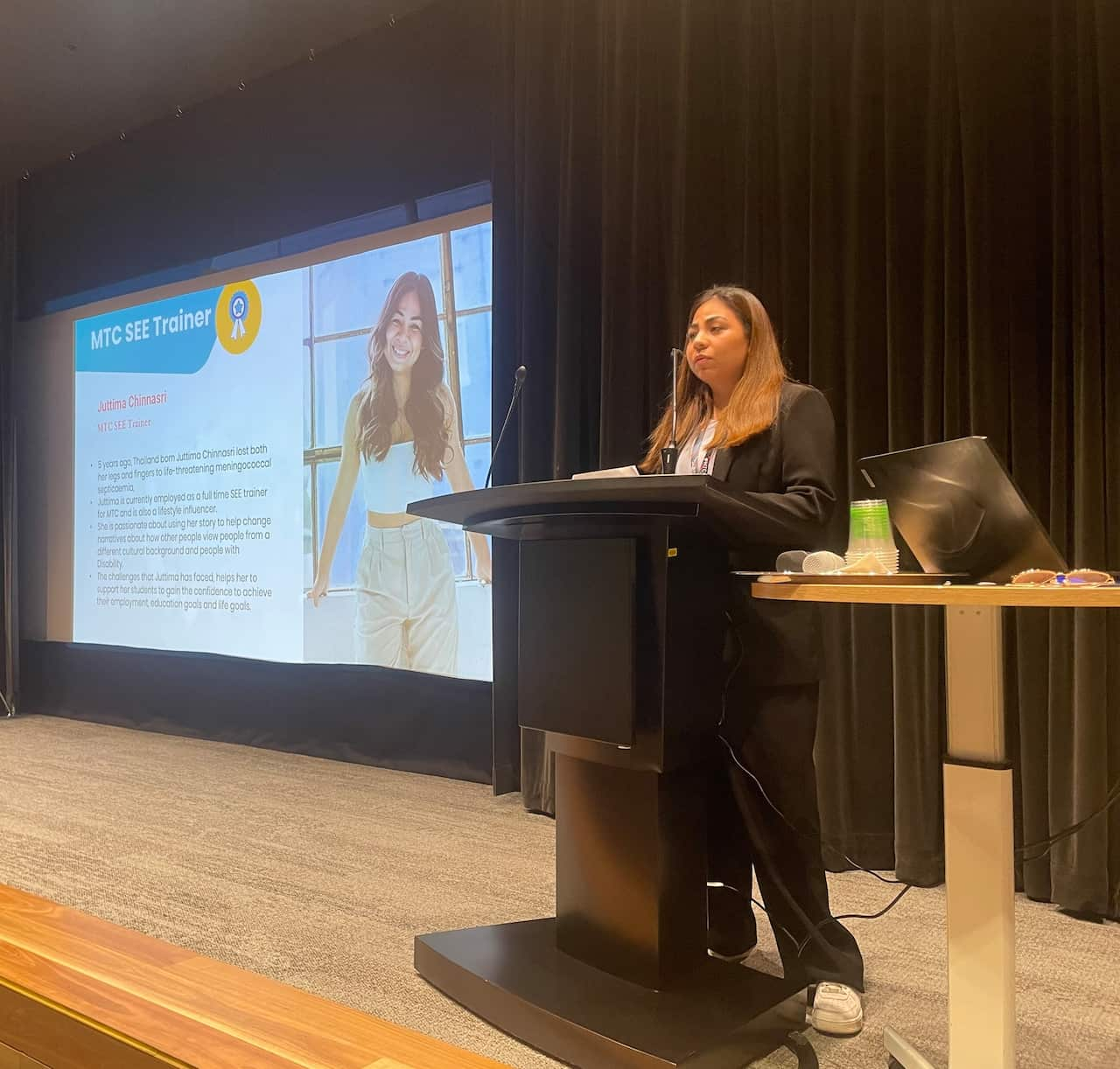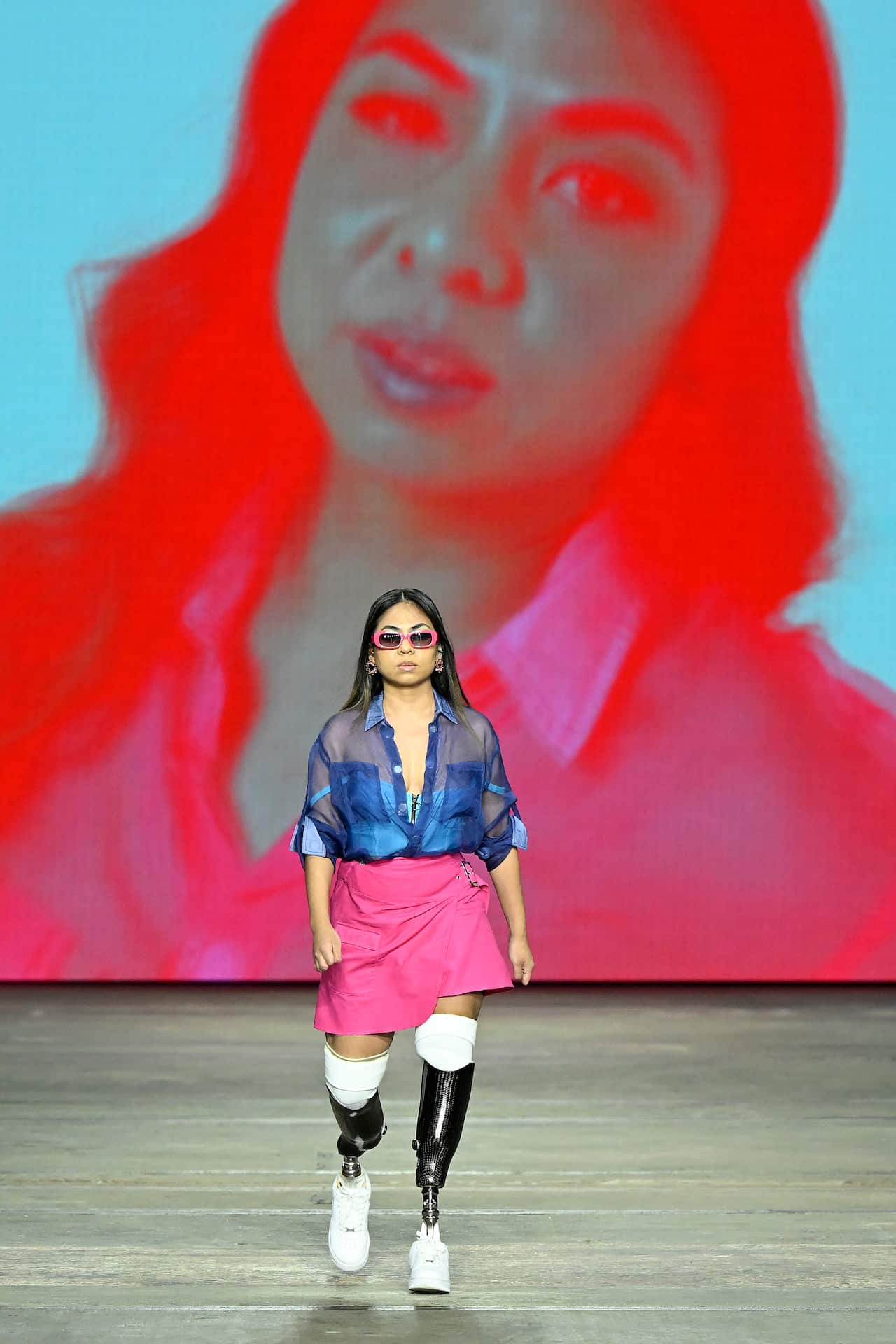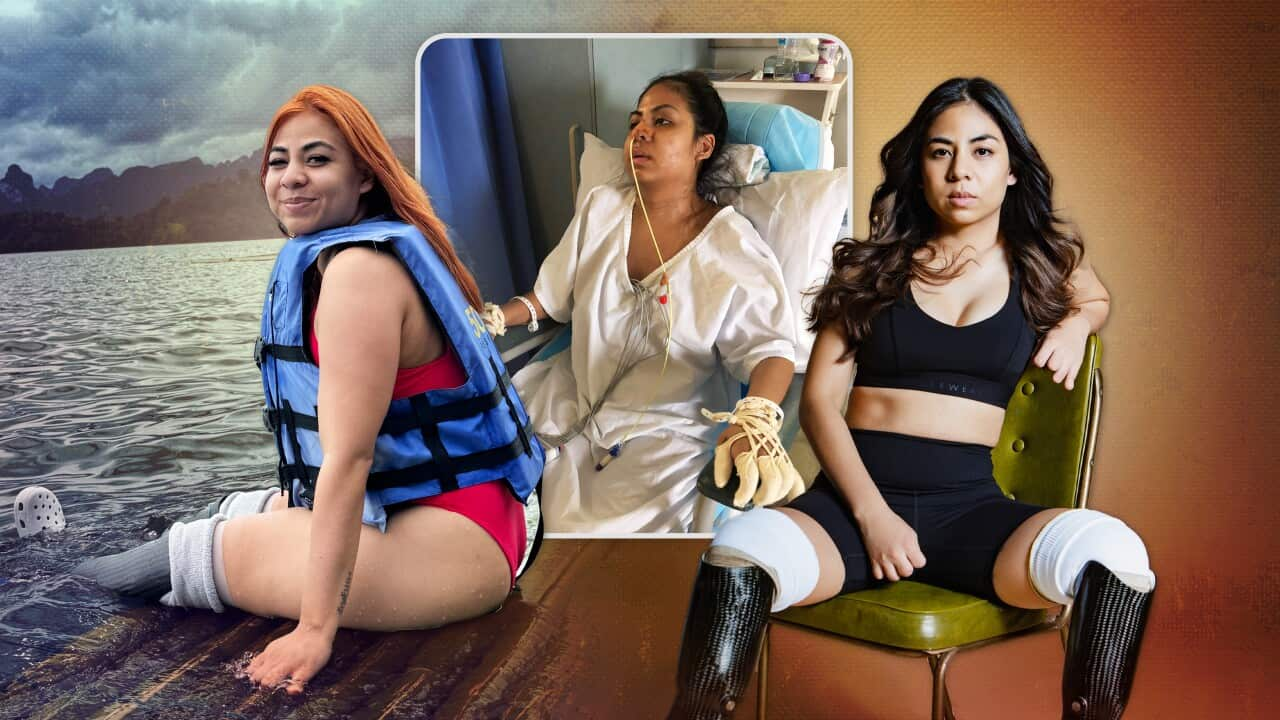Key Points
- Jutima (Jam) Shinasri lost her legs and fingers after contracting meningococcal disease in 2018.
- She is now an advocate for people with disabilities.
- She works as a model and actor including taking part in Australian Fashion Week.
The number of cases dropped during the height of the COVID-19 pandemic with Australia registering 90 in 2020 and 74 in 2021. The cases have picked up again with 125 reported in 2022 and 143 in 2023. This year alone, 47 cases have been reported.
When I realised that I could not keep my legs, I was sad, but I had to eventually accept it.
Jutima (Jam) Shinasri
Shinasri said this fact played a critical role in her being especially vulnerable to the life-changing illness.
“Vaccinations included in the national immunisation program do not cover all strains of the disease. The B strain, which I was infected with, is not provided for free. Most people aren’t aware of this,” she told SBS Thai.

Jutima (Jam) Shinasri has been a guest speaker at medical conferences since losing her legs and fingers after contracting meningococcal disease. Credit: Supplied/Jutima Shinasri
After being discharged from hospital, Shinasri shared her story on Instagram.
“Before my amputation, I had never work as a model or in the advertising industry,” Shinasri said.

Jutima (Jam) Shinasri was one of 10 models with disabilities who walked the runway during Australian Fashion Week in 2022. Credit: Stefan Gosatti/Getty Images
In 2022, she walked the runway for Jam label (no relation) and Christina Stephen and Dyspnea at the first-ever adaptive fashion show during Australian Fashion Week.
Shinasri has also participated in advertising campaigns, had an extra part in the 2024 movie Furiosa: A Mad Max Saga and walked the runway as part of Bangkok Fashion Week.

Jutima (Jam) Shinasri is a vocal advocate for people with disabilities. Credit: Supplied SBS Thai /Jutima Shinasri
“If I hadn’t become an amputee, I wouldn’t have had the chance to explore new experiences in advertising and fashion,” Shinasri said.
“Accessibility in Australia has improved, but there’s still a lot of room for progress, especially in public facilities,” she said.
Negative stigmas and misconceptions were deeply ingrained, but Shinasri said increasing representation and visibility were crucial steps towards fostering inclusivity.
With almost 20 per cent of the population (with a disability), their voices and experiences are invaluable. If we don’t consider them, how can they feel seen and heard?
Jutima (Jam) Shinasri
“I am passionate about increasing representation and ensuring that people with disabilities are included in all platforms. They are often invisible, and it’s time we changed that,” she said.
